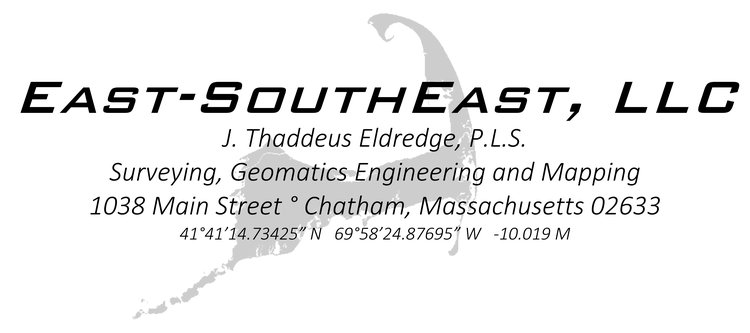Sewer Connection Plans
We have great experience with the Sewer Department Rules and Regulations for the Town of Chatham. The same rules are being applied to the Town of Harwich. We have found the following workflow to prove successful:
Before the sewer is installed, we offer an Initial Review which includes obtaining copies of the record septic system documents, visiting the site, verifying the locations of utilities, reviewing the important improvements with the property owner, determining the optimal location for the sewer lateral and placing the stake at that location prior to the construction of the sewer. It is always noted that the Contractor cannot always install the lateral in the location selected.
If we are starting with a project after the sewer has been installed, we still perform the Initial Review without setting the stake at the optimal location for the sewer lateral.
In either case, the fee for the Initial Review is subtracted from or included with the total fee for the Sewer Connection Plan.
After the sewer has been constructed and connections are allowed, we prepare Sewer Connection Plans for the permitting and construction of the connection.
FAQ
Are these plans really necessary?
The plans are required for the permit to install the sewer. In many cases, the contractor would be more than capable to install the sewer without plans. In many municipalities, there is no requirement for plans to be made prior to installations of connections. In Chatham, the old sewer connections were completed without plan and recovering the pipes for adjustments, additional connections or other purposes has often been challenging.
Why are we constructing sewer?
For a few decades, we have known that the nutrients leached into the ground from our septic systems has been transported to the salt water estuaries through the groundwater. These nutrients are detrimental to our estuaries. Collecting waste and treating it within a wastewater treatment facility will help to reduce our impact on our natural environment.
But my house is not used all the time or there is only one person living in it.
We have heard this statement many times and it is understandable. How can the wastes of one person or a family using the property for a short period of time cause so much trouble? Yes, the contribution may be minimal but there is still adds to the problem. Given the cost of the infrastructure and the fact that results will take time to see, it is important to obtain as much sewage as possible as soon as possible.
How soon can I connect?
After the sewer is constructed, the system will be as-built and tested prior to connections being allowed. The Board of Health has the power to demand connections and they typically give a year to connect. Extensions can be granted but you will have to connect.
What are the costs and is there help to pay?
The costs for the design and installation will vary based on firm and extent of the connection. A shorter connection is often less expensive than a longer connection. The typical connection can be expected somewhere between $5,000 and $10,000 with ongoing costs of sewer fees. These fees are calculated based on the amount of water used. Properties with irrigation systems should be augmented with a second water meter or an irrigation well to avoid paying extra for water that is not added to the sewer system.
There is a regional program that will provide a loan for the construction of the sewer: https://www.barnstablecountysepticloan.org/
Do you have more questions?
